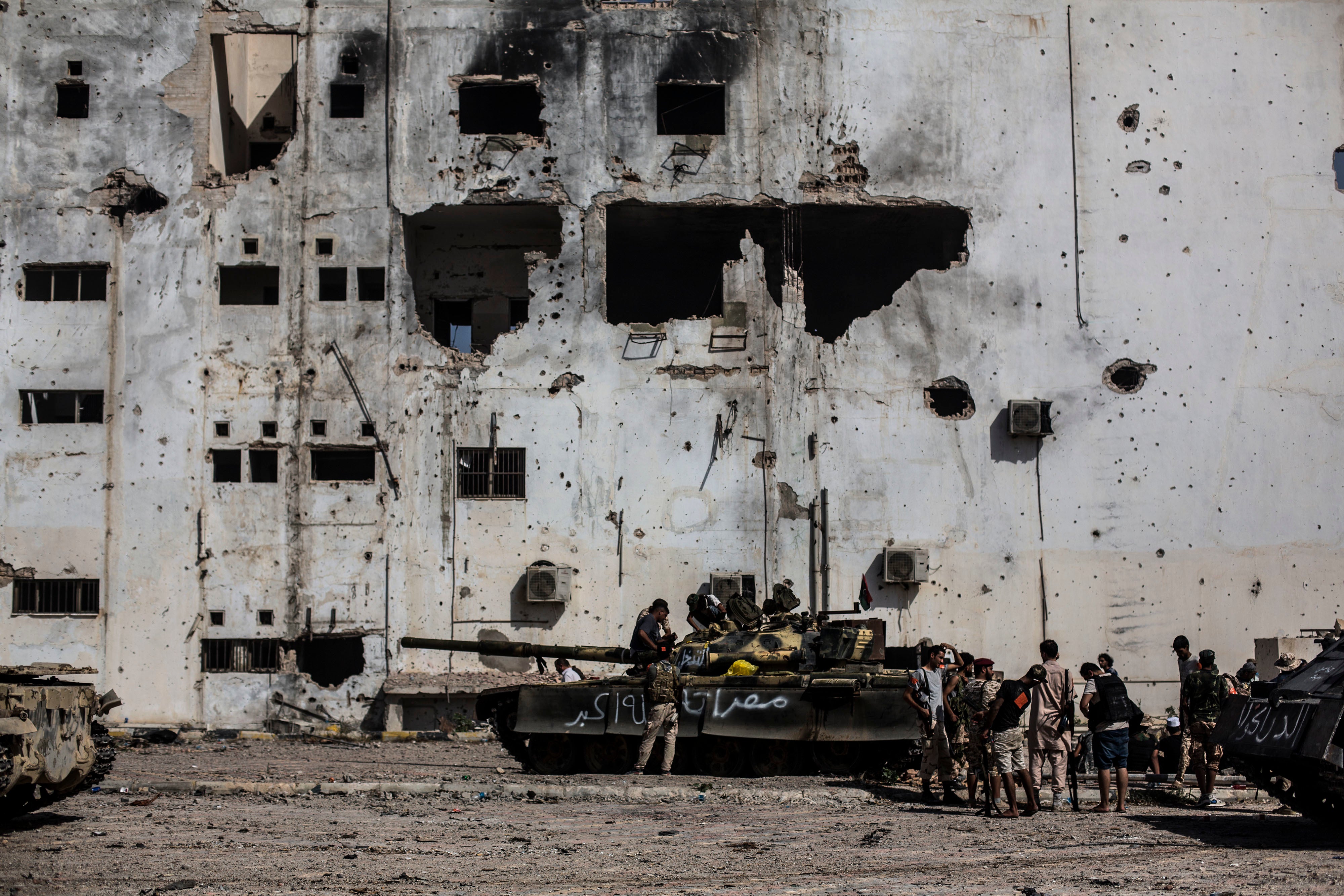Germany hosts conference to push for progress in Libya
Germany and the United Nations are bringing together representatives of Libya with powers that have interests in the country at a conference which aims for progress toward securing elections in the North African nation and the removal of foreign fighters

Your support helps us to tell the story
From reproductive rights to climate change to Big Tech, The Independent is on the ground when the story is developing. Whether it's investigating the financials of Elon Musk's pro-Trump PAC or producing our latest documentary, 'The A Word', which shines a light on the American women fighting for reproductive rights, we know how important it is to parse out the facts from the messaging.
At such a critical moment in US history, we need reporters on the ground. Your donation allows us to keep sending journalists to speak to both sides of the story.
The Independent is trusted by Americans across the entire political spectrum. And unlike many other quality news outlets, we choose not to lock Americans out of our reporting and analysis with paywalls. We believe quality journalism should be available to everyone, paid for by those who can afford it.
Your support makes all the difference.Germany and the United Nations are bringing together representatives of Libya with powers that have interests in the country at a conference Wednesday which aims for progress toward securing elections in the North African nation and the removal of foreign fighters.
The meeting at the foreign ministry in Berlin, with U.S. Secretary of State Antony Blinken among those attending, follows up on a January 2020 conference where leaders agreed to respect an arms embargo and to push the country's warring parties to reach a full cease-fire. Germany has tried to act as an intermediary.
Countries that have been involved in the process include the five permanent members of the U.N. Security Council, along with Italy, Turkey and the United Arab Emirates.
Ahead of the conference, German Foreign Minister Heiko Maas noted that much has been achieved in the past two years. An October cease-fire agreement that included a demand that all foreign fighters and mercenaries leave Libya within 90 days led to a deal on elections that are due to be held on Dec. 24 and a transitional government that took office in February.
But “many challenges still lie ahead of us,” said Maas, who met Libya's transitional prime minister and foreign minister on Tuesday evening. “For the further stabilization of the country, it is crucial that elections take place as planned and that foreign fighters and mercenaries really do leave Libya.”
He added that Wednesday's conference launches a new phase “in which we no longer only talk about Libya, but in which we are now speaking with Libyan men and women about the future of their country.”
The U.S. special envoy for Libya, Richard Norland, welcomed the participation of Libyans in the talks.
“The U.S. goal is a sovereign, stable, unified Libya with no foreign interference and a state that is capable of combating terrorism within its borders. We strongly oppose all military escalation and all foreign military intervention, which only deepen and prolong the conflict," he told reporters in Washington ahead of the conference.
Norland said that it was important to start bringing all armed groups in the country under a joint military command.
“When foreign forces leave, they’re going to need to be replaced by a viable united Libyan national military and police structure,” he said.
Meanwhile, aid group Doctors Without Borders said this week it was suspending its activities in two detention centers in Tripoli after “repeated incidents of violence toward refugees and migrants held there.” It said staff had witnessed guards beating detainees at one center and received reports of people being shot at in another.
Libya has been a key transit country for migrants from Africa trying to reach Europe, especially after the collapse of order when a NATO-backed uprising toppled and later killed longtime dictator Moammar Gadhafi in 2011. The oil-rich country was long divided between a U.N.-supported government in the capital, Tripoli, and rival authorities based in the country’s east, each backed by armed groups and foreign governments.
In April 2019, eastern-based commander Khalifa Hifter and his forces, backed by Egypt and the United Arab Emirates, launched an offensive to try to capture Tripoli. Hifter’s 14-month campaign collapsed after Turkey stepped up its military support of the U.N.-backed government with hundreds of troops and thousands of Syrian mercenaries.